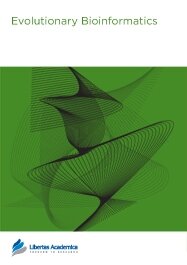

Publication Date: 20 Sep 2012
Type: Original Research
Journal: Evolutionary Bioinformatics
Citation: Evolutionary Bioinformatics 2012:8 545-564
doi: 10.4137/EBO.S10159

Optimizing microalgal biofuel production using metabolic engineering tools requires an in-depth understanding of the structure-function relationship of genes involved in lipid biosynthetic pathway. In the present study, genome-wide identification and characterization of 398 putative genes involved in lipid biosynthesis in Arabidopsis thaliana Chlamydomonas reinhardtii, Volvox carteri, Ostreococcus lucimarinus, Ostreococcus tauri and Cyanidioschyzon merolae was undertaken on the basis of their conserved motif/domain organization and phylogenetic profile. The results indicated that the core lipid metabolic pathways in all the species are carried out by a comparable number of orthologous proteins. Although the fundamental gene organizations were observed to be invariantly conserved between microalgae and Arabidopsis genome, with increased order of genome complexity there seems to be an association with more number of genes involved in triacylglycerol (TAG) biosynthesis and catabolism. Further, phylogenomic analysis of the genes provided insights into the molecular evolution of lipid biosynthetic pathway in microalgae and confirm the close evolutionary proximity between the Streptophyte and Chlorophyte lineages. Together, these studies will improve our understanding of the global lipid metabolic pathway and contribute to the engineering of regulatory networks of algal strains for higher accumulation of oil.
PDF (4.41 MB PDF FORMAT)
RIS citation (ENDNOTE, REFERENCE MANAGER, PROCITE, REFWORKS)
Supplementary Files 1 (208.54 KB ZIP FORMAT)
BibTex citation (BIBDESK, LATEX)
PMC HTML
This is the fastest progress we have experienced from submission to acceptance. Reviews are fast, pertinent, and instructive. Every step of the process is visible and prompt, and every email is friendly and immediate. In all, it is an excellent experience to be published in Libertas Academica.

All authors are surveyed after their articles are published. Authors are asked to rate their experience in a variety of areas, and their responses help us to monitor our performance. Presented here are their responses in some key areas. No 'poor' or 'very poor' responses were received; these are represented in the 'other' category.See Our Results
Copyright © 2013 Libertas Academica Ltd (except open access articles and accompanying metadata and supplementary files.)
Facebook Google+ Twitter
Pinterest Tumblr YouTube